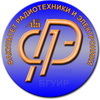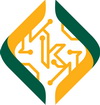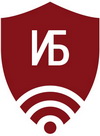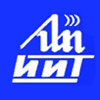 Faculties
Faculties

Faculty of Computer-Aided Design
– an international educational and scientific centre created in association with FORTE Knowledge company, Illinois Technology Association (ITA) and leading IT experts from the USA; an educational and research centre INTES established by an innovative company INTES with the support of foreign companies Schneider Electric (France) and CISCO (USA); a joint educational and scientific laboratory Integrated Mobile Systems established by an innovative company AXONIM Devices (a partner of Analog Devices, Texas Instruments and ST Microelectronics).
Faculty of Information Technologies and Control
Moreover, Faculty scientists have strong business relations with the universities of the USA, Germany, Poland, Finland, the Netherlands and France. The Faculty maintains close partnerships with world leading manufacturers of computers & control systems, such as IBM, Siemens, Philips, Intel, Motorola, Omron IBM, IBА, EPAM Systems, Itransition, TopSoft, Galaktika Corp., and etc.

Faculty of Computer Systems and Networks
Thirteen joint laboratories and certified education centres support teaching process and hold additional IT courses. In 2012, the IBM Academic Centre of Competence based on the joint BSUIR-IBA laboratory was awarded a prestigious prize under the IBM Faculty Awards programme. Other certified centres include SAP Academic Competence Centre, National Instruments Training Centre, CUDA Training Centre and Cisco Network Academy. Faculty students take a deep insight into programming technologies and languages (Pascal, C/C++, Assembler, C#, Java, .NET etc.), database control systems (MySQL, MS SQL Server, Oracle etc.), web-technologies (HTML, CSS, XML, PHP etc.), technologies of software development and QA, software and hardware support of computer networks, etc.
Faculty of information security
Faculty students take a deep insight into mathematical and physical bases of telecommunication technologies, and develop their skills of designing, programming and implementing innovative technologies. The expertise gained during studies helps graduates to quickly adapt to the requirements of the up-to-date telecommunication field.




